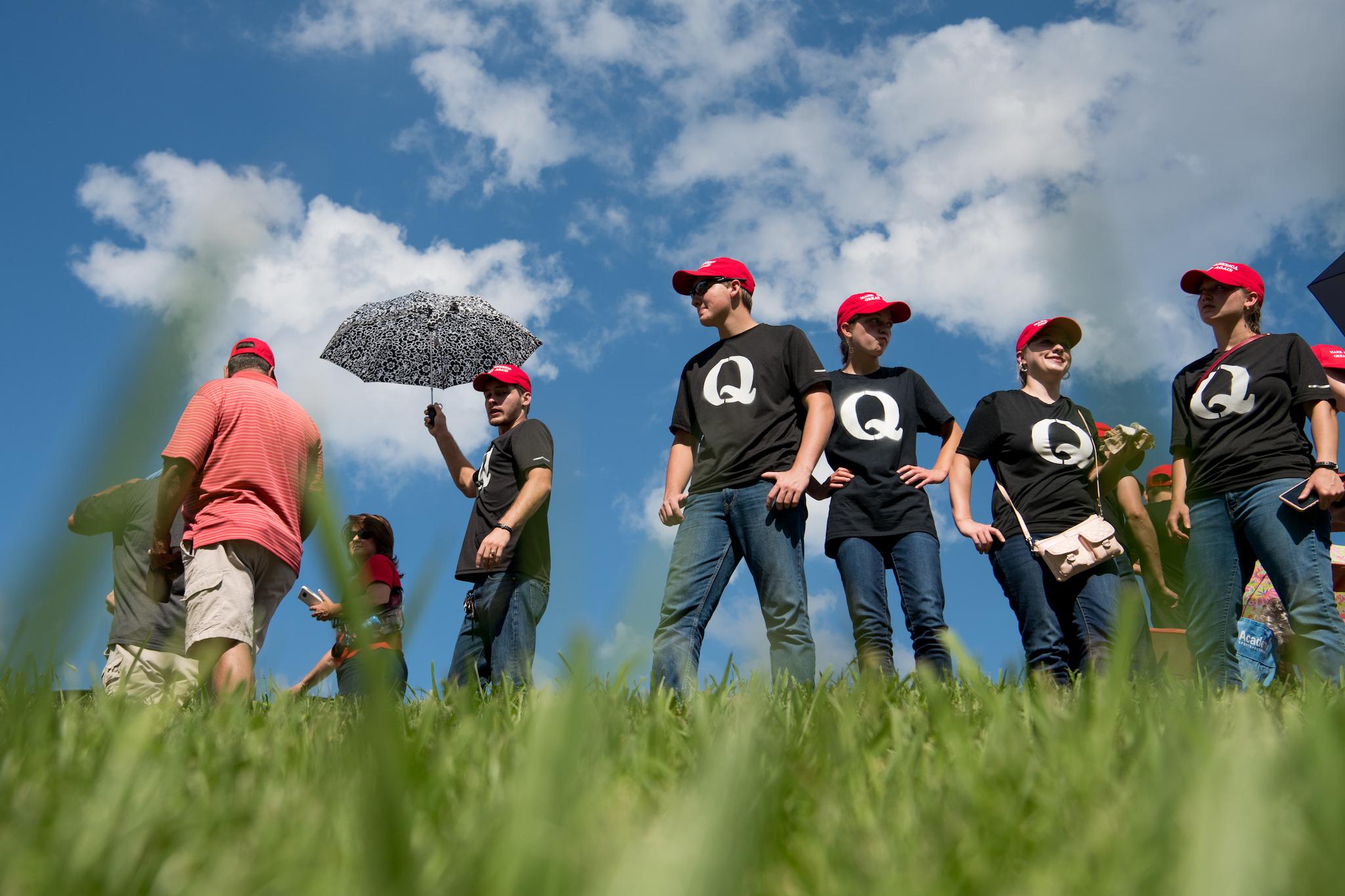QAnon: What are Twitter's new rules on conspiracy theory – and why is it hiding posts from users?
False story has been boosted by people including Donald Trump, who is already in a dispute with Twitter over whether potentially harmful posts should be limited

Twitter has launched a major crackdown on the QAnon conspiracy theory, citing its "potential to lead to offline harm".
The company has already taken down more than 7,000 accounts, the company said in a statement, and new measures will lead some 150,000 accounts to have less visibility than they did before.
But just as significant is the change of course that Twitter's actions represented, indicating that the social network is intending to launch a more widespread crackdown on a conspiracy theory that has been boosted by people including Donald Trump.
Twitter's new rules do not amount to an outright ban – users will still be able to post about QAnon, so long as they comply with stringent new rules – but they do suggest that Twitter will show much less tolerance for the conspiracy theory in the future.
The QAnon theory centres on the false belief that much of the US establishment, from Hollywood to politicians, are involved in a conspiracy that involves child sex trafficking, cannibals and satanism. It also claims that Donald Trump is secretly working against this group, and that information on that fight is being revealed by "Q", an anonymous person or group of people.
It began with posts on 4chan that included mysterious messages about some sort of deep state conspiracy, but has since spread both to other parts of the internet and to accuse most parts of the establishment. As it has become more popular, it has been widely discussed on more mainstream social networks, including Twitter.
The site's new rules are specifically aimed at stopping that spread, and include measures such as stopping posts about QAnon showing up in search and banning links to specific websites about the conspiracy.
Twitter explained the decision to restrict posts about it in a series of tweets, in which it made clear that the decision was made because of the threat of offline harm.
"We’ve been clear that we will take strong enforcement action on behavior that has the potential to lead to offline harm. In line with this approach, this week we are taking further action on so-called ‘QAnon’ activity across the service," the company wrote.
"We will permanently suspend accounts Tweeting about these topics that we know are engaged in violations of our multi-account policy, coordinating abuse around individual victims, or are attempting to evade a previous suspension — something we’ve seen more of in recent weeks."
It pointed to three different new rules. It will "No longer serve content and accounts associated with QAnon in Trends and recommendations", "Work to ensure we’re not highlighting this activity in search and conversations", and "Block URLs associated with QAnon from being shared on Twitter", it said."These actions will be rolled out comprehensively this week. We will continue to review this activity across our service and update our rules and enforcement approach again if necessary.
"As we work at scale to protect the public conversation in the face of evolving threats, we’ll continue to lead with transparency and offer more context on our efforts."
Twitter did not name any particular instances of harassment or other offline incidents that had led to the ban, but it comes amid increasing concern that the conspiracy theory could be radicalising people, and after countless examples of real-world issues caused by belief in the QAnon story.
Most notable among those incidents was a 2016 incident where a man took a rifle into Comet Ping Pong, a Washington, DC pizza restaurant that has been at the centre of the Pizzagate conspiracy theory. Though Pizzagate is strictly separate from QAnon, it contains many of the same assertions, and the Comet Ping Pong incident was followed by a number of other, related, concerning incidents.
This is not the first time a social network has banned posts associated with the group. Facebook said that it had taken down a number of accounts in April, pointing to their engagement in "coordinated inauthentic behaviour" rather than harassment, as in the new case of Twitter.
"We removed 5 Pages, 20 Facebook accounts, and 6 Groups that originated in the US and focused domestically. Our investigation linked this activity to individuals associated with the QAnon network known to spread fringe conspiracy theories," it wrote in a report in May. "We found this activity as part of our internal investigations into suspected coordinated inauthentic behaviour ahead of the 2020 election in the US."
The QAnon conspiracy theory has been positively retweeted by Donald Trump, whose supporters also regularly wear clothing using the Q symbol to his rallies. Mr Trump and Twitter have been engaged in long-running disputes about whether the reach of certain potentially harmful posts should be limited, but the president is yet to comment on Twitter's latest decision.
Join our commenting forum
Join thought-provoking conversations, follow other Independent readers and see their replies
Comments
Bookmark popover
Removed from bookmarks